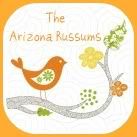I always thought of Solomon as a mostly good, obedient man who went astray at the end of his life. In a sense this is true, but in reading through Solomon's story this time, I have come to realize that his divided heart early on in his reign is what let to his eventual turning away from the Lord.
Solomon was blessed. His dad was David. He inherited the throne of Israel in a time of peace and prosperity. He was given all the supplies to build the first ever temple for Yaweh. He asked God for wisdom and it was granted to him in abundance, along with riches. He had the respect of other nations. He had a close relationship with the Lord, and God would come speak to him. It doesn't get much better than that.
However, in the midst of all this goodness, there are subtle hints that Solomon's heart was at times divided and not in accordance with his dying father's request that Solomon and his offspring "walk before me in all faithfulness with their heart and with all their soul " (I Kings 2:4). Even though Solomon was obedient in building a beautiful temple for the Lord, he actually spent more time, money, and effort in building his own palace next door. It took him seven years to build the temple, and Solomon took thirteen years to complete his own house (I Kings 6:38 - 7:1) Even though, at first, Solomon had only one wife, he made "a marriage alliance with the Pharaoh of Egypt. He took Pharaoh's daughter and brough her into the City of David" (I Kings 3:1). This is dangerous for two reasons. First, Moses commanded the Israelites not to "return to Egypt" (Deut. 17:16) for any reason, after their God-granted escape from slavery. Taking a wife from Egypt is, in a sense, returning to that land. And of course, this also relates to the second reason, that Israel was warned from their arrival in the Promised Land not to take foreign wives, as they would inevitably lead Israelite men into paganism and idolatory. Solomon, although faithful in building the temple, was unfaithful in other small ways that would have big consequences later on.
Even after the temple was built and Solomon was still receiving God's blessing, living in a time of prosperity, being admired by the world, and expanding his kingdom, he was still seeking after things with a divided heart. Even though Israelite did not yet have a king at the time, God speaks to Moses in Deuteronomy and gives some simple guidelines that future Israelite kings should follow. These commands encourage moderation, even for kings, so that their possessions will not replace God in their hearts and lives. Among the commands, God specifically tells future kings not to acquire "many horses," "many wives," nor "excessive silver and gold" (Deut. 17:16-17). Even as he is experiencing the Lord's blessing, Solomon begins to specifically break these three commands, but it happens slowly over time. Eventually though, Solomon has "12, 000 horesemen" and so much silver that "silver was not considered anything in the days of Solomon" (I Kings 10:21). All these signs of a divided heart occur long before Solomon even takes his 1000 wives and concubines, which reveals a heart turned away from the Lord.
While the human heart must always battle with the flesh, and while we will always be tempted by idols as we live on this earth, Solomon's story paints a very vivid warning for me. Are there subtle areas of my life where I am not being obedient? Are there tiny idols trying to work their way in, which, although small, can lead to great sin and destruction? Are there small ways where I am refusing to trust or obey the Lord, which I cover up by obeying in the "big ways" and by doing "big works?" Am I building a temple, but also building my own palace somewhere else in my life? I don't necessarily have all the answers to these questions, but they are definitely worth pondering as I attempt to live a life of faithfulness with ALL my heart and ALL my soul.
Tugas Copywriting
4 years ago

